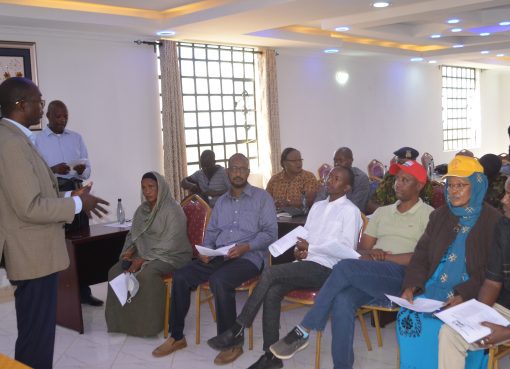Epson Company has set aside Sh83 billion to spend on attaining the United Nations Sustainable Development Goals (SDG) 2030 in the next 10 years through innovation and technology.
The Epson Regional Head, East and West Africa, Mr. Mukesh Bector said the Epson a Japanese printing and information technology company will focus on decarburization, resource cycling and an accelerated programme to develop environmental technologies.
Bector said the company has put in place measures that will see it work with societies and communities to achieve the UN goals, while using its manufacturing processes which are aligned to the SDGs.
He said depletion of natural resources and other environmental problems have become increasingly evident, a reason he noted has made organizations to be more aware of the challenges to pursue sustainability that are essential to environmental protection, economic growth, and social stability.
“Epson recognizes that sustainability is the key catalyst for innovation and this is why the company is changing the way people print by offering an alternative to cartridges and a way of printing which does not use heat in the process,” said Bector.
He said the company has to date worked with at least 800 different organizations who have sponsored printers and education materials to enhance and bring quality education to institutions that do not have access to the technological materials.
“The funding we have set aside will also be utilized to further streamline manufacturing processes and educate our partners and improve research processes,” said Bector.
He said since the advent of technology has made education interactive in remote areas, the education pillar has become key in Epson’s SDGs, noting that the company finds joy in installing interactive projectors in remote areas to help teachers and students.
“We work a lot with education institutions to provide live content and live feed in a virtual classroom with our solutions,” he added.
The Regional Head was speaking during a Media Workshop aimed creating awareness on how Epson has incorporated sustainability in its manufacturing process as a goal to achieve competitive advantage that was held at a Nairobi hotel on Tuesday.
He announced that the 75-year company has to date sold at least 70 million eco tank devices, which were launched a decade ago with Kenya being the first market in Africa where the brand was introduced, adding that the company always ensures that it has a strong reliable service infrastructure in place before selling its products.
“The popularity of this machine is due to its running on low cost and is very low user intervention,” he said.
Bector said the company has over the years diversified its innovation and currently has more than 30 models that are compliant and assured that the company will continue to bring to the market new products that are of benefit.
“We are always strive to bring solutions that help our customers, we focus on customer products, small businesses, education, printing and robotics,” he stated.
He singled out innovation, technology and solutions as some of the key products the company focuses on to be one of the leading manufacturers in print, visual and innovation technologies, as they work towards renewal energy.
According to Epson, a single technology switch from laser printing inkjet printing reduces up to 83 percent in energy consumption, while its Eco tank cartridge free printers saves in plastic waste as one set of ink bottles equivalent of 79 ink cartridges, saving around 1.6 million tonnes of plastic based consumables through the sale of over 70 million EcoTank printers worldwide.
The company manufactures printers, ink, projectors and cartridges.
Others present included Epson Tech Sales Generalist Local, East Africa Mr. Charles Muhuko and Epson Marketing Services Specialist, East and West Africa, Catherine Kihara.
By Bernadette Khaduli




